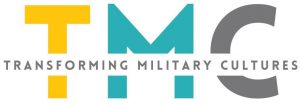
The TMC Network seeks to share research, analysis, and ideas on the topic of military culture change. We welcome submissions from all Network members, including emerging scholars and practitioners. We are especially interested in timely interventions into ongoing national and international conversations on military culture change.
Take a look at our blog submission guidelines for information on how you can contribute!
Defence Policy Update 2024: What of Culture Change?
Blog post by Maya Eichler, Tammy George, and Nancy Taber | August 15, 2024
Canada’s Defence Policy Update (DPU), Our North, Strong and Free: A Renewed Vision for Canada’s Defence, was released on April 8, 2024. The TMC Network hosted a webinar at the end of May to discuss the DPU’s implications for military culture change. Here we share a few thoughts of our own, as TMC co-directors, on what the DPU means for the future of military culture change. We ask: Is culture change being taken seriously in the DPU or only being paid lip service to?
Click below to read more.
From Military Member to Graduate Student: Doing Research on Data Mismanagement, Military Sexual Violence, and Culture Change
Blog post by Caleigh Wong, Graduate Student, McGill University | Recipient of 2024-25 TMC Network Research Scholarship | July 31, 2024
My path to military culture research was not particularly planned. Despite coming from a relatively anti-establishment family, one certainly without a strong military background, I joined the Primary Army Reserves in 2017 at 18 years old. I was in the Canadian Armed Forces (CAF) for five years, during which I deployed once to Latvia on Operation REASSURANCE, as well as on a number of domestic operations in Atlantic Canada. Unconventionally, I was also balancing responsibilities surrounding my undergraduate program in International Development Studies and Civil Engineering at Dalhousie while overseas on tour, which was awaiting my resumption once I returned from Latvia. During a Zoom call with my supervisor from the camp mess, I explained to her how challenging the experience had been. As one of thirty-some women in the Canadian contingent of 500 soldiers, and one of the few racialized ones, day-to-day life in Camp Adazi was worlds away from the circles I ran with back in Halifax—circles that were generally queer, progressive, and social justice-oriented. My supervisor suggested I use my Honours thesis as an opportunity to make an academic investigation into the issues I personally witnessed within the institution, and so this journey began. Since then, I have spoken to Prime Minister Trudeau about systemic violence within the CAF, led the ethics training program at my home reserves unit, testified as a witness for the Parliamentary Standing Committee on Veterans Affairs’ Study into The Experience of Women Veterans, and committed both my undergraduate and graduate major research endeavours to the topic of military sexual violence and culture change in the CAF. This work is simultaneously professional and personal, and I keep with me the many inspiring servicemembers I was privileged to work with who continue to navigate the realities of being a woman in the CAF.
Click below to read more.
International Perspectives 2024
Blog postAsh Grover
Overview
On January 24, 2024, members of the TMC Network gathered for our second webinar in the series titled, “International Perspectives on Transforming Military Cultures.” In this webinar, Network members Kyleanne Hunter and Morten Ender (United States), Chiara Ruffa and Annick Wibben (Sweden), and Hannah West (United Kingdom) each began by addressing their respective country’s most critical challenges with respect to military culture change and then shared best practices for transforming military cultures from their unique contexts.
Click below to read more.
“I just want to be treated like everyone else” – Healthcare for Trans People in the Canadian Military
Blog post by Sophia Konermann, B.Sc., PhD Candidate, University of New Brunswick | Recipient of 2022-23 TMC Network Research Scholarship | April 5, 2024
Understanding history to understand the present is essential. In 1992, the Canadian Forces Administrative Order (CFAO) 19-20 was declared unconstitutional. CFAO 19-20 rendered “homosexuality” a justifiable rationale to discharge members from the Canadian Armed Forces (CAF) and led to their persecution. During the LGBT Purge, the military used CFA 19-20 to discriminate against, persecute, interrogate, and discharge LGBT-suspected members from the CAF. Research and advocacy combined contributed to the federal government’s apology to the 2SLGBTQIA+ community in 2017 (Gouliquer, 2000; Gouliquer et al., 2018; Gouliquer & Poulin, 2005; Poulin, 2001; Poulin et al., 2009, 2018; Poulin & Gouliquer, 2012). Government mandated reports in recent years indicate that people who are members of specific gender and sexual minorities are more likely to experience harassment and discrimination in the CAF (Arbour, 2022; Deschamps, 2015). This is the case even though the Canadian military has made a supposed effort to become more inclusive and to take an active stance against sexual misconduct, discrimination, and harassment, with limited success (Government of Canada, 2023; Okros & Scott, 2015). Policies detailing care and accommodations for trans people have been adapted over the years as the public discourse on trans people has shifted. For example, the new 2022 dress regulations allow CAF members to order uniforms traditionally associated with either binary gender without prior approval.
Click below to read more.
Sowing the Seeds of Change through Critical Education at Canadian Forces College
Blog postVanessa Brown
In April of 2022, after 9 years of contract instruction, I became an assistant professor at Canadian Forces College. Spring of 2022 was an interesting time to learn the ropes as a new faculty member. The Defence Team was experiencing a flurry of action precipitated by sexual violence scandals; an external report on sexual misconduct (Arbour, 2022); a class action lawsuit on sexual harassment, sexual assault and discrimination (“Heyder and Beattie”); and, a Statistics Canada survey reporting that in 2019, most (68%) student respondents from the Royal Military College of Canada and Royal Military College Saint-Jean witnessed or experienced unwanted sexualized behaviours in their post-secondary learning environment (Maxwell, 2020). These events came on the heels of another disturbing report released in the winter of 2022 about race and other types of intersecting identity discrimination in the Department of National Defence/Canadian Armed Forces (DND/CAF). This report indicated, “persistent racial discrimination for Black and racialized members, harassment of women and members of the LGBTQ2+ community, lack of informed medical support for transgender transformations, neglect of persons with disabilities and a disregard for the importance of partnership with Indigenous Peoples” (Minister of National Defence Advisory Panel on Systemic Racism and Discrimination, 2022).
Click below to read more.
Transforming (Military) Cultures: Getting Serious About Change
Blog post by Maya Eichler, Tammy George, and Nancy Taber | September 26, 2023
Maya Eichler, Tammy George, and Nancy Taber are the co-directors of the DND-MINDS funded international collaborative network Transforming Military Cultures.
There is currently a tremendous opportunity and appetite for transformative change in Canadian society. Institutions and organizations across the board are grappling with culture change initiatives. In the wake of the COVID-19 pandemic, inequities were revealed across sectors including, but not limited to, the labour market, health care, and higher education. A few months into the pandemic, George Floyd’s death mobilized massive protests across the globe and catalyzed a rewriting and reclaiming of history. These events, along with the ongoing climate crisis, human rights abuses, geopolitical instability, and the rise of right-wing movements, are threatening political and social institutions and profoundly impacting the lives of individuals and communities. For many, returning back to “normal” is simply not an option.
Click below to read more.
Institutional Ethnography: Understanding the Gap between Canadian Armed Forces Values and Everyday Experiences within Training and Education
Blog post by Marshall Gerbrandt, PhD Student (Education), University of New Brunswick | Recipient of 2022-23 TMC Network Research Scholarship | July 5, 2023
My military journey lasted 20 years. I graduated high school and, despite having no familial connection to the Canadian Armed Forces, I immediately joined the Navy as a non-commissioned member. My expectations were formed through flashy recruiting advertisements and popular culture focused on adventure and danger. In truth, my experience in the Navy was mostly repetitive monotony interspersed with brief moments of excitement, both of which occurred alongside an opportunity to travel. I enjoyed my time in the Navy for the most part, but after five years I left and joined the Army as an officer. While the change in uniform led to my being more engaged in my work, the ratio of monotony and excitement probably remained the same, although the travel destinations were a tad more austere. My time in the military was filled with a variety of experiences such as combatting shipboard fires, deploying internationally, and confronting the personal or ‘real life’ issues experienced by military members daily. While military training prepared me to lead and follow, it fell short in providing the necessary skills to see soldiers as people outside of their uniform. These people had friends and family who were ill or dying; they had kids and partners who struggled with the demands that military life imposed upon us.
Click below to read more.
“It was sad. It was shitty”: How Children in Military Families Experience Military Culture
Blog post by Kathryn Reeves, Undergraduate Student (Psychology) | Recipient of 2022-23 TMC Network Research Scholarship | June 29, 2023
Throughout my childhood, my experiences were colored by the tempo of military life. Segal (1986) described the military and the family as greedy institutions, depending on commitment and loyalty from their members. Children in military families (CIMF), like myself, find themselves within the intersection of these two institutions, often attempting to balance life within the precarious divide between being a child and being a supportive intergenerational link to the armed forces. Stressors associated with serving in the military affected me and my sibiling as well as my father. As often as he was away on a deployment or training, I was home missing a parent. Every time he was posted and uprooted from previous support networks, so was I. However, the lived experiences of children in military families are often neglected in conversations of how military culture is experienced. Despite the large population of CIMF, my experience of support for military related stressors was limited. Civilian health care providers, teachers, councillors, and peers are often unaware of the ways in which military culture manifests and influences childhood development. My current research aims to address the limitations I saw throughout my life as a military family member. In my research, I aim to directly integrate the voices of CIMF, who are often underrepresented, in order to create more robust understandings of intergenerational impacts of military life or stressors.
Click below to read more.
Lead by Example: Culture Change in DND/CAF’s CNAP3 Implementation Plan
Blog postSandra Biskupski-Mujanovic
This year, Canada will release its third National Action Plan on Women, Peace and Security (CNAP3). Civil society actors have provided recommendations to improve the next National Action Plan (NAP) and many of the recommendations involve strengthening the domestic agenda, including culture change in the Department of National Defence (DND) and Canadian Armed Forces (CAF). This moment is an opportunity for DND/CAF to take these recommendations seriously and approach the Women, Peace and Security (WPS) agenda, a framework of United Nations Security Council Resolutions that recognize the unique effects of conflict on women, with an inward focus that prioritizes transforming military culture.
Click below to read more.
Writing to Create Culture Change
This blog post, put together by Ash Grover, is based on work produced by participants of the TMC Annual Symposium held in Halifax in February 2023 | April 12, 2023
Overview
On the last day of our first annual symposium, participants attended a Writers Collective of Canada Workshop run by TMC co-director Dr. Nancy Taber, titled “Culture Shock: Writing Together to Reflect on Transforming Military Cultures.” During the workshop, participants were given writing prompts and invited to share their expressive writing and listen deeply to that of others. At the close of the workshop, participants were invited to write a favourite line from their own writing on a post-it note, to craft into a collaborative story. That collaborative story, titled “The Story Always Belongs to Us”, appears below.
Following the writing workshop, attendees participated in a found poetry exercise, using materials generated throughout the symposium. Found poetry is a form of writing which uses a bricolage approach, where pieces of text are taken from existing sources and repurposed, sometimes emphasizing aspects of the original meaning, and sometimes giving new meaning. Utilizing the prompt, “What have we learned about transforming military cultures?” participants were invited to reflect on discussions that had taken place, read the words posted on notes around the conference room and in the graphic recording, and craft a found poem based on different pieces of text that resonated with them. You can find some of those poems below, shared by members of the TMC executive team and other symposium participants.
Click below to read more.
International Perspectives
Blog postNancy Taber
Overview
On November 22, 2022, members of the TMC Network gathered for the webinar, International Perspectives on Transforming Military Cultures. Network members Samantha Crompvoets (Australia), Laura Masson (Argentina), Anna Mensah (Ghana), and Ben Wadham (Australia) started off the session by each addressing their respective country’s most critical challenges with and best practices for transforming military cultures.
Click below to read more.
Why Anti-Oppression Practice is Not (and Never Should Be) Straightforward
Overview
On November 7, 2022, the TMC Network hosted the webinar, “Understanding Anti-Oppression as a Framework for Military Culture Change.” Network member and PhD student Ash Grover (she/her/elle) led the group in a discussion about systems of oppression, principles of anti-oppression work, and the application of anti-oppression to military contexts. During the webinar, Ash discussed the definition of oppression that informs her work, as well as key differences between inclusion and anti-oppression; she explained that inclusion focuses more on enhancing representation of diverse groups within military spaces and anti-oppression seeks to transform such spaces to make them more equitable. The webinar also explored three common forms of oppression and their relevance to military culture: sexism and patriarchy, homophobia and heteronormativity, and colonialism and white supremacy. The full webinar can be viewed here.
There are some basic components of anti-oppression that can be generally applied, but they still need to be tailored to each specific context. These include an awareness of power and privilege, acknowledgement of larger social structures and their impact at an organizational level, and an openness to apply an evolving and fluid framework. If we understand oppression as discrimination which is rooted in power, then we acknowledge that this power can be pervasive and often multifaceted, as well as contextual. How much power an individual holds depends on the room they are in, and who else is in the room, it depends on the overarching culture of the institution, and the cultural worldviews brought into the room by anyone else present. Power is complex, and it requires an equally complex practice of self and social awareness to address where power imbalances can lead to harm.
As a group, participants in the webinar discussed ways in which military members can reflect on their own internalized biases and complacency within systems of oppression, in order to use privilege and power to create meaningful change. One of the main comments from the group was that organizations that engage with the Equity, Diversity, and Inclusion (EDI) are often looking for a standardized framework they can apply within their unique institution. While the desire for a “one-size-fits-all” framework of anti-oppression that comes with clear step-by-step instructions is understandable, I argue, it is impossible for such an application to exist.
Click below to read more.
Culture Change Meets Health and Wellness: Reflections on our CIMVHR Workshop
Blog post by Tammy George | November 2, 2022
Overview
In October 2022, the Transforming Military Cultures Network (TMC) conducted a workshop entitled, “Culture Change Meets Health and Wellness,” at the Canadian Institute for Military and Veteran Health Research (CIMVHR) Forum. Understanding that culture change is a stated key priority of the Canadian Armed Forces (CAF), this workshop focused on how culture change intersects with health and wellness in the military context. In light of the 2021 sexual misconduct crisis and mounting class action law suits, issues of health and wellness among CAF members and veterans need to be central to contemporary culture change efforts. The primary goals of our workshop were to identify what lessons can be learned about culture change from the civilian health care sector as it too grapples with histories of ableism, colonialism, racism, sexism, and homophobia in its practices. The workshop also outlined an anti-oppression framework and illustrated its application to issues of health and wellness. Finally, some best practices for ongoing culture change efforts within Canadian Forces Health Services (CFHS) and Chief Professional Conduct and Culture (CPCC) related to health and wellness were discussed.
Click below to read more.
Responding to the Minister’s Advisory Panel Report
Blog post by Sandra Biskupski-Mujanovic, Maya Eichler, Tammy George, and Nancy Taber | September 8, 2022
Background
In December 2020, Minister of National Defence Harjit Sajjan created an Advisory Panel to address racism in the Defence Team towards Indigenous, Black, and People of Colour as well as discrimination and bias towards women and the 2SLGBTQI+ community. As part of its mandate to eliminate racism and discrimination within the organization, the Advisory Panel was tasked with engaging with the organization’s existing policies, practices, and procedures and to provide recommendations. The result was a 120-page report that summarizes the factors that have led to ongoing racism and discrimination in the Defence Team, in addition to identifying 13 areas of opportunity, in which 43 recommendations are proposed.
As part of the TMC Network’s culture change efforts, we held a network meeting on August 24th to discuss the report. Our discussion was organized around two central questions: What are the promises and limitations of the report? How can the TMC Network best facilitate the recommendations stemming from the report? The following highlights emerged from our discussion and illuminate some key considerations to build on the Advisory Panel’s report.






































